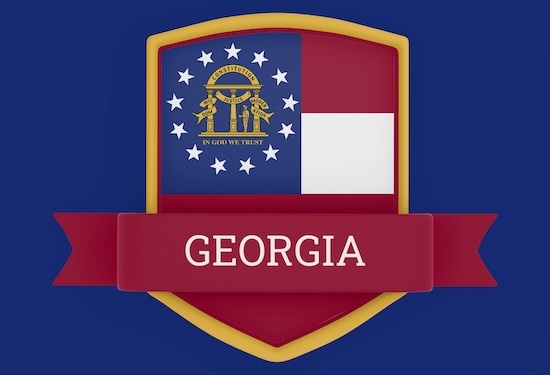
From the Lenape to the Garden State: A Comprehensive History of New Jersey
July 22, 2024
From Puritans to Patriots: Uncovering Connecticut’s Revolutionary History
July 26, 2024From James Oglethorpe to Martin Luther King Jr.: A Comprehensive Look at the History of Georgia
Georgia has a rich and complex history that spans centuries. From its colonial beginnings to the modern civil rights movement, this southern state has been shaped by a variety of key moments and influential figures.
In this comprehensive guide, we will look at the fascinating history of Georgia, exploring its early settlements, its role in the American Revolution and Civil War, and the significant events and individuals that have shaped the state’s identity. Join us as we uncover the captivating story of Georgia’s past.
Colonial Beginnings: Explore the founding of Georgia by James Oglethorpe and the establishment of the colony as a haven for debtors and a buffer against Spanish Florida.
The history of Georgia begins with the founding of the colony by James Oglethorpe in 1733. Oglethorpe, a British philanthropist and soldier, established the colony as a haven for debtors and a buffer against Spanish Florida.
The colony was named Georgia in honor of King George II of England. Oglethorpe envisioned Georgia as a place where the poor and persecuted could start anew and have the opportunity to become self-sufficient.
The early settlers faced many challenges, including conflicts with Native American tribes and the harsh conditions of the frontier. However, they persevered and laid the foundation for the future growth and development of Georgia.
Show them you care: Give a gift that tells your loved story. Personalized keepsakes they’ll treasure forever. Shop now at MyFrontPageStory.com!
Revolutionary War: Learn about Georgia’s role in the American Revolution, including the Battle of Kettle Creek and the Siege of Savannah.
During the American Revolution, Georgia played a significant role in the fight for independence from British rule. The Battle of Kettle Creek, which took place in 1779, was a pivotal moment in Georgia’s involvement in the war. Led by Colonel Elijah Clarke, a group of Patriots successfully ambushed and defeated a larger force of Loyalists, boosting morale and inspiring other Georgians to join the fight.
The Siege of Savannah, which occurred in 1779, was a less successful endeavor for the Patriots. Despite the efforts of American and French forces, the British were able to maintain control of the city. However, the events of the Revolutionary War in Georgia laid the groundwork for future movements toward independence and set the stage for the state’s continued involvement in shaping the nation’s history.
Antebellum Era: Discover the impact of slavery on Georgia’s economy and society, as well as the state’s involvement in the cotton industry.
The antebellum era in Georgia’s history was marked by the institution of slavery and its profound impact on the state’s economy and society. Georgia was one of the largest slaveholding states in the South, with plantations relying heavily on enslaved labor to cultivate crops such as cotton. The cotton industry boomed in Georgia during this time, with the state becoming a major producer and exporter of cotton. The profitability of cotton led to the expansion of slavery and the growth of a wealthy planter class in Georgia.
However, the reliance on slavery also had significant social and political consequences. Slavery shaped the social hierarchy in Georgia, with enslaved people facing brutal conditions and limited rights. The institution of slavery also influenced the state’s political landscape, with pro-slavery politicians holding power and advocating for the preservation of slavery.
The antebellum era in Georgia’s history was characterized by a complex interplay of economic prosperity, social inequality, and political tensions. The legacy of this era continues to shape the state’s identity and ongoing discussions about race, equality, and justice.
Civil War and Reconstruction: Examine the pivotal role of Georgia in the Civil War, including the Atlanta Campaign and Sherman’s March to the Sea. Learn about the challenges and changes during the Reconstruction period.
The Civil War had a profound impact on Georgia, as the state became a major battleground and experienced significant destruction and loss. The Atlanta Campaign, led by Union General William T. Sherman, was a crucial turning point in the war. Sherman’s forces captured Atlanta in September 1864, dealing a major blow to the Confederacy and setting the stage for his infamous March to the Sea.
During Sherman’s March to the Sea, his troops cut a path of destruction through Georgia, targeting infrastructure and resources that supported the Confederate war effort. This campaign aimed to demoralize the South and break its will to fight. The march left a lasting impact on Georgia, with many communities and plantations devastated by the Union army.
Following the end of the Civil War, Georgia entered the Reconstruction period, which brought significant changes and challenges. The state had to grapple with the abolition of slavery, the reintegration of formerly enslaved individuals into society, and the rebuilding of its economy and infrastructure. Reconstruction also saw the emergence of new political dynamics, as African Americans gained the right to vote and hold office.
However, Reconstruction in Georgia was marked by resistance and backlash from white supremacists who sought to maintain white dominance and control. The rise of the Ku Klux Klan and other white supremacist groups led to widespread violence and intimidation against African Americans and their allies.
The Civil War and Reconstruction period in Georgia’s history were pivotal moments that shaped the state’s trajectory and ongoing struggles for racial equality and justice. Understanding this history is essential for comprehending the complexities of Georgia’s past and present.
Civil Rights Movement: Dive into the significant events and influential figures of the civil rights movement in Georgia, including Martin Luther King Jr., the Albany Movement, and the March on Washington.
The civil rights movement in Georgia played a crucial role in the fight for racial equality and justice. Martin Luther King Jr., a native of Atlanta, emerged as one of the movement’s most influential figures. His leadership and advocacy for nonviolent protest inspired countless individuals and helped galvanize support for the civil rights cause.
The Albany Movement, which took place in Albany, Georgia, was a pivotal moment in the struggle for civil rights. Activists, including King, organized protests and demonstrations to challenge segregation and discriminatory practices. Despite facing significant opposition and arrests, the movement brought national attention to the fight for equality in the South.
The March on Washington, held in 1963, was a landmark event in the civil rights movement. King delivered his iconic “I Have a Dream” speech, calling for an end to racial segregation and discrimination. The march and King’s speech helped mobilize support for civil rights legislation and brought the issue to the forefront of national consciousness.
These events and figures are just a glimpse into the rich and complex history of the civil rights movement in Georgia. Exploring this history provides valuable insights into the ongoing struggle for equality and the individuals who have shaped the state’s fight for justice.
Here’re eight other things America’s fourth state has to offer:
- Rich History: Georgia is a state with a rich and diverse history. From its early Native American inhabitants to its role in the Civil Rights Movement, Georgia has played a significant role in shaping American history.
- Southern Hospitality: Georgia is known for its warm and welcoming hospitality. Visitors to the state can expect to be greeted with a friendly smile and a genuine sense of southern charm.
- Natural Beauty: Georgia is home to stunning natural landscapes, including the picturesque Blue Ridge Mountains, the scenic coastline of the Atlantic Ocean, and the breathtaking beauty of the Okefenokee Swamp. Nature lovers will find plenty to explore and enjoy in Georgia.
- Delicious Cuisine: Georgia is famous for its delicious southern cuisine. From mouthwatering barbecue to savory fried chicken and soulful comfort food, Georgia offers a wide range of culinary delights that will satisfy any food lover’s cravings.
- Vibrant Cities: Georgia is home to vibrant cities like Atlanta, Savannah and Athens. These cities offer a mix of history, culture and entertainment, with thriving arts scenes, bustling nightlife, and a wide range of dining and shopping options.
- Sports Fanatics: Georgia is a haven for sports enthusiasts. The state is home to professional sports teams like the Atlanta Braves, Atlanta Falcons and Atlanta Hawks, as well as college football powerhouses like the University of Georgia Bulldogs.
- Music and Arts: Georgia has a rich musical heritage, with influential artists like Ray Charles, James Brown, and Outkast hailing from the state. The state also boasts a thriving arts scene, with numerous galleries, theaters, and music venues showcasing local talent.
- Personalized Newspapers: If they’re ever looking for the perfect gift to get someone in their life, Georgians can have a My FrontPage Story shipped directly to their doorstep.
Georgia offers a unique blend of history, hospitality, natural beauty, delicious cuisine, vibrant cities, sports, and a thriving arts scene. Whether you’re a history buff, a nature lover, a foodie, or a sports fanatic, Georgia has something to offer everyone.
Written by Ubersuggest




